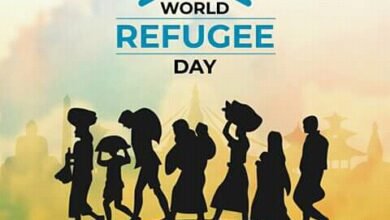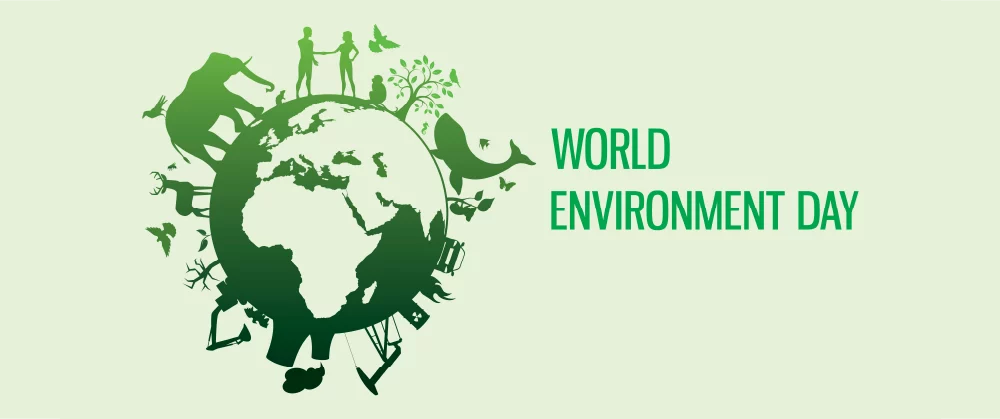Nigerian Court Dismisses Treason Charges Against Minors in #EndBadGovernance Case, Spotlighting Plight of Children’s Rights

In a powerful and precedent-setting ruling, the Federal High Court in Abuja dismissed charges against over 125 protesters, including 29 minors, who were accused of treason following their participation in the #EndBadGovernance protests in Kano. The case underscores a critical issue in Nigeria, the urgent need for robust child safeguarding principles and protections that extend to children in conflict with the law.
The defendants, mostly teenagers between the ages of 14 and 17, were arrested during protests that erupted in August due to rising costs of living. Accused of chanting anti-government slogans and allegedly displaying foreign flags, these young Nigerians faced severe charges, including treason and incitement to mutiny. The minors were detained for nearly three months in overcrowded cells, and their prolonged detention drew national and international outcry, especially after harrowing images surfaced showing malnourished young detainees collapsing in court. This case, highlighted by ChildrenInfoBank on November 1st, quickly gained traction as a rallying point for child advocacy groups, exposing the harsh realities faced by Nigerian minors caught in the judicial system.
President Tinubu’s Intervention: A Humanitarian Directive
President Bola Tinubu’s intervention was a rare but crucial step. Ordering the minors’ release, he emphasized the need to balance legal proceedings with humanitarian considerations. In his directive, Tinubu also called for the Ministry of Humanitarian Affairs to oversee the safe return of the minors to their families and commissioned an investigation into the handling of these cases by law enforcement. Tinubu’s response points to a greater need for humane treatment of Nigeria’s youth, especially when involved in incidents where their actions may conflict with governmental or institutional expectations.
Historical Context: A Recurring Challenge for Child Rights in Nigeria
This case is part of a broader, ongoing struggle for children’s rights and protection in Nigeria, where systemic issues and gaps in safeguarding principles remain. Nigeria has seen repeated instances where minors, particularly those from economically disadvantaged backgrounds, become victims of a system that inadequately addresses their rights. From street children exploited by gangs to minors detained without due process, the country’s track record on child rights and protection has come under frequent scrutiny.
The #EndBadGovernance protests are reminiscent of the #EndSARS movement in 2020, where young Nigerians spoke out against police brutality, often bearing the brunt of the state’s response. In that instance as well, minors were caught up in mass detentions and faced similarly troubling conditions. The ongoing cost-of-living crisis has only amplified frustrations, leaving young people, many of whom already face limited opportunities, more vulnerable to the harsh realities of political and economic instability.
The Plight of the Nigerian Child: Current Challenges
The recent #EndBadGovernance arrests reveal a sobering truth: Nigerian children, particularly those from marginalized communities, often lack adequate legal and social protections. The case’s specifics—overcrowded detentions, allegations of malnutrition, and emotional trauma—underscore the absence of child-focused justice principles within the broader judicial system.
International child rights principles, such as those outlined by the United Nations Convention on the Rights of the Child (CRC), emphasize that children should only be detained as a last resort. They further stress that children’s best interests must always be the primary consideration, a principle that many advocates argue was grossly neglected in the treatment of the minors detained in Abuja. Children in these circumstances endure trauma that can hinder their psychological and emotional development, making it imperative for Nigeria to reassess its approach to juvenile justice and child protection.
Nationwide Response and the Role of Advocacy
The dismissal of the charges has garnered applause from advocacy groups, including ChildrenInfoBank, which initially reported on the minors’ plight and has closely followed the case. These organizations have called for justice and accountability, noting that the case represents more than just an isolated incident—it reflects a need for comprehensive child protection frameworks in Nigeria.
Rights organizations such as Enough is Enough and Amnesty International have described the detention of these children as “institutional child abuse” and a significant threat to freedom of assembly. Amnesty International, for example, condemned the prolonged detention as a dangerous precedent in the country’s response to civil disobedience, warning of further deterioration of child rights if left unchecked.
Safeguarding and Child Protection: The Path Forward
The urgency of this case highlights the need for Nigerian authorities to adopt child-centered approaches that prioritize safeguarding principles. Key recommendations for creating a safer environment for Nigerian children include:
- Strengthening Juvenile Justice Reforms: Ensuring that minors are only detained as a last resort and for the shortest time possible is essential. Special juvenile detention centers, equipped with child-focused support, must be prioritized to protect minors from the adverse conditions often present in adult facilities.
- Implementation of Safeguarding Protocols: Introducing rigorous child protection standards across law enforcement and judicial systems can safeguard against abuse. Training programs for police, social workers, and judicial officials should be mandatory, emphasizing children’s rights and handling cases involving minors.
- Increased Advocacy and Awareness: Collaboration with advocacy groups like ChildrenInfoBank, Enough is Enough, and international bodies can bring about necessary change in the treatment of minors within Nigeria’s legal framework.
- Support Systems for Affected Youth: Post-detention, minors often require rehabilitation and reintegration support to address the psychological trauma associated with their experiences. The Ministry of Humanitarian Affairs and social welfare organizations should provide counseling and education opportunities to help affected youths reintegrate.
- Legal Safeguards and Policy Reform: Clear policies must be established to ensure that minors are not held on ambiguous charges. Legislative bodies should review and update policies concerning the treatment of juveniles in protest-related and civil disobedience cases, with clear mechanisms for accountability in cases of abuse.
Conclusion: An Opportunity for Transformative Change
The dismissal of charges against these minors represents a significant moment in Nigeria’s ongoing battle for children’s rights. President Tinubu’s intervention and the directive to release the minors provide an opportunity to reflect on and reform Nigeria’s approach to juvenile justice and child protection. However, the work does not end here. If Nigeria is to live up to its commitments under the CRC and the African Charter on the Rights and Welfare of the Child, it must take immediate action to establish child-focused policies that protect vulnerable youths.
As the young detainees await formal release and reunification with their families, the spotlight remains on Nigeria’s government to fulfill its promises of humane treatment. Moving forward, Nigeria has an unprecedented opportunity to build a society where children are protected, empowered, and respected





